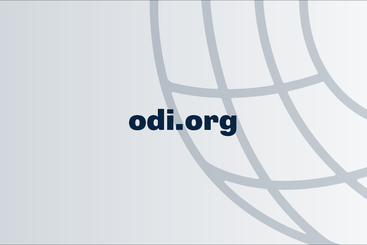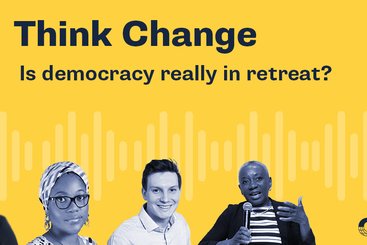Against a backdrop of steady democratic backsliding and growing polarisation, populism, and autocratisation, the puzzle of how to revitalise democracy has become one of the most pressing challenges we confront today – and it is a question that lies at the core of current foreign policy and international development debates.
To date, standard approaches to democracy strengthening have remained limited in considerable ways. Among other things, they tend to rely on simplistic and overly technical assumptions about how change happens: the main problem is understood as one of poor capacity and/or lack of adequate financial resourcing, and so it can be addressed in a relatively straightforward manner. In reality, what matters most are the power dynamics at play: what the obstacles to democratic reform and potential agents for and against change might be. This is a decidedly more complex challenge, and one that is also profoundly political in nature.
So what does more innovative, politically informed democracy support look like, and what kinds of factors have enabled more effective international policy and practice in this area?
These were the questions at the heart of a recent ODI-Thinking and Working Politically Community of Practice webinar on “Engaging with politics: Towards smarter international support to revitalise democracy”.
Panellists drew on experiences of working on women’s empowerment initiatives, supporting citizen engagement with government authorities at the local level, and creating safe spaces for multi-stakeholder dialogue and collective action. Leading donors also shared their reflections about how the democracy support field has evolved and how their organisations have sought to adapt. The panel discussion served to crystallise takeaways and principles that reinforce wider lessons about what more politically attuned democracy strengthening efforts entail, and how international development actors can support these more effectively and consistently.
There are grounds for optimism – as well as room for pause. Or as Tom Carothers put it in his closing remarks, despite tentative progress, the road to think and work politically, intuitive as it may sound, is rather long.
Starting with the positive, it is clear from what the different speakers highlighted that there has been meaningful innovation in the kind of democracy support that is provided, how it is provided and why.
Politically smart democracy support:
All this makes a lot of sense, and it reinforces many of the lessons on democracy support – and development policy and practice more widely – over the past two decades. Nevertheless, thinking and working politically remains a lot more easily said than done, and very often much of the way in which the international development community continues to support democracy is not grounded on these lessons and principles.
The road that Tom evoked is long for a reason.
Among other things, creating enabling environments that are based on trust is not always easy. It calls for donor ways of working that are less reliant on management systems, mindsets and relationships of tight central control, and instead are more flexible and embrace greater uncertainty. As our speakers emphasised, this includes funding modalities that are less prescriptive and more open ended, different ways to think about (and value) results, and a willingness to take risks and to accept some degree of failure. Building relationships based on trust is also time and resource intensive. Different donors, including Sida in particular but also USAID, the Dutch Ministry of Foreign Affairs and the UK Foreign, Commonwealth and Development Office among others have sought to embrace these kinds of open and adaptive ways of engaging with partners. Yet, frequently efforts to think and work differently require a careful balancing act between priorities and concerns that may pull in different directions rather than complement each other.
The discussion also leaves open some questions about where politically smart democracy support fits within the broader strategies of international actors.
A focus on amplifying the work of domestic reform champions may reflect a sensible, pragmatic approach. But any progress towards deepening democracy is likely to be slow and gradual, at the margins, and to involve setbacks. It is critical for the legitimacy and sustainability of such efforts that external actors remain suitably humble and realistic about this – and that when and where they do engage, they “stick with it” over the longer term.
Finally, as Tom again emphasised in his closing point, being politically smart means being politically intentional. In the case of democracy support, this means challenging power. And so in a world of increasing autocratisation, being politically smart involves facing greater pushback from powerful actors. What kind of appetite is there for this kind of risk, and what might be some of the dilemmas involved in this? Nic emphasised how very challenging this can be in particular for local partners working on the ground, who can end up in difficult or even dangerous positions if they push too hard. Helena, on the other hand, called on those involved in democracy support to be more daring and outspoken. And the truth is that there is no simple way to address this question, or the tensions between intentionality and purported impartiality.
The road is long indeed, but we must stay the course. The challenge to revitalise democracy is well worth the ride.




